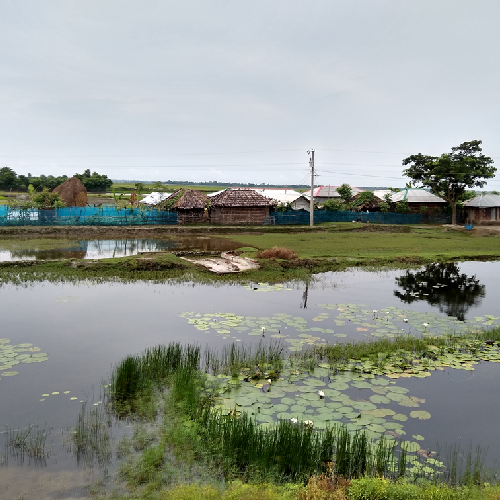Drinking water ponds in southern Bangladesh: blending traditional and scientific management approaches

We are looking for a student with strong interests in freshwater sciences and complex development problems to work with a large transdisciplinary international team. Bangladesh has a profound drinking water crisis which threatens the country’s 160 million inhabitants. Contamination of groundwater with arsenic or salinity has rendered many drinking water sources either unusable or linked with chronic health conditions. Efficient rainwater capture is a vital alternative source of drinking water supply across many regions, but many technological solutions are too expensive in rural Bangledeshi households. Traditionally, ponds have been managed by local communities to capture rainwater, protect surface waters from groundwater contaminants and ensure it is of sufficient quality for potable supply. These ponds are scattered across rural waterscapes, interspersed with local agricultural lands and households in a complex mosaic of intensive land use. Recently the use of drinking water ponds has become stigmatized and associated with poverty, leading to some ponds falling into disrepair. Combining social and natural sciences approaches, this project aims to investigate the use and potential of drinking water ponds to mitigate the drinking water crisis in rural Bangladesh. The student will use surveys and interviews of local communities to collate and harness local traditional knowledge on drinking water pond management. Limnological surveys will be conducted to assess water quality and ecological structure of ponds (including their role as breeding grounds for disease vectors) and understand how these are influenced by saline incursions, latrine and land management and meteorological conditions. Supported by a large research Hub www.livingdeltas.org, researchers from University of Nottingham (Suzanne McGowan, Virginia Panizzo), Lancaster Environment Centre (Manoj Roy, Phil Barker), Bangladesh University of Environment and Technology http://iwfm.buet.ac.bd/site/ and project partners Water Aid Bangladesh https://www.wateraid.org/bd/, the ideal candidate would be enthusiastic about working overseas with vulnerable communities, across disciplines and in cross-cultural contexts.
Applicants should hold a minimum of a UK Honours degree at 2:1 level or equivalent in subjects such as Biology, Natural Sciences, Geography or Environmental Science. Previous experience and/ or training in limnology, aquatic ecology, social surveys and fieldwork in challenging and varied conditions would be considered an advantage.
For further information about the studentship please e mail Suzanne McGowan suzanne.mcgowan@nottingham.ac.uk.
